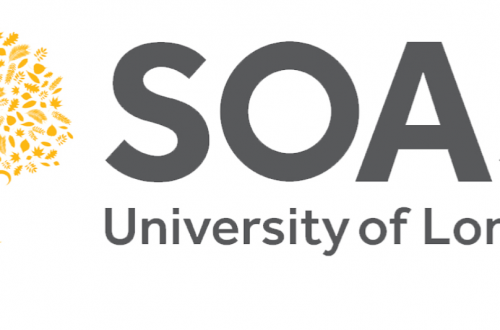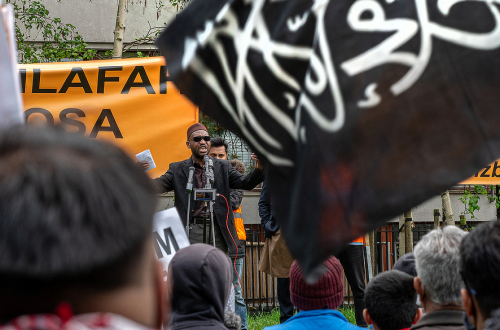The doctrine of Taqiyya is a familiar canard within some strands of anti-Islam discourse. A comparatively obscure teaching, designed to save Muslims from peril and persecution by allowing them to lie about their faith, has become a mechanism for rubbishing the integrity of any Muslim whose views are inconveniently liberal and secular. Here ‘Nice Mangoes’ – a blogger whose views on other practices within Islam are trenchantly critical – questions its use.
Basically a few days ago, some dude I had never heard of, called @FuriousFossa was upset that I tweeted about not knowing what Taqiya was till I got on twitter. Despite growing up in Saudi. Because this didn’t confirm his previously held beliefs, what good are ex-muslims if they can’t confirm your bullshit views?!
However that doesn’t mean that Muslim apologists or preachers can’t be evasive and misleading. For example some may try to duck out of questions about hudud punishments by falling back on an assertion that they obey the law of the land. This may sound reassuring, but doesn’t rule out the possibility that they would ideally support an Islamist regime – just watch Maajid Nawaz probing Ibrahim Hewitt here.
A recent article in the Huffington post – written by Omar Suleiman and Nazir Khan of the Yaqeen Institute* – sets out to criticise the way the Taqiyya charge is weaponised. The authors’ comments on this specific point are fair enough. However there seems – both ironically and unnecessarily – to be some obfuscation in the authors’ more general preamble.
[W]ords like “Shariah” and “Jihad” have been exploited by Islamophobes who affirm the perverted meanings assigned to these terms by terrorists. Meanwhile, mainstream Muslims believe that Jihad refers to a struggle undertaken for the sake of God to protect the lives and rights of others, and that Shariah refers to a divinely ordained system that enjoins treating all human beings in the best manner. Islamophobes, when faced with this discrepancy between what they want the words to mean and what mainstream Muslims believe they actually mean, resort to a profoundly unsophisticated tactic – they simply declare all Muslims to be compulsive liars.
I’ll just focus on the discussion of ‘Shariah’. It’s pretty ambiguous. It could be glossed as meaning that hudud punishments are a perversion and that true ‘Shariah’ is something reassuringly benign (if vague). Yet presumably Muslims who support the harshest penalties in an ideal state would concur that Shariah means ‘treating all human beings in the best manner’. So the whole argument is rather circular.
Having looked into the views of the two authors, they do at the very least seem to want to contextualise and modernise hudud punishments out of the picture. But implicit here is approval of the way these, hanging over one as a hypothetical threat, chill freedom of action and expression – even though the author is seeking to reassure those concerned by violent penalties.
These laws are subject to lengthy discussion in the books of Islamic jurisprudence which place upon them such stringent conditions as to render their application essentially obsolete[32]—and this is precisely in line with the Prophet’s emphasis on the hudood serving primarily as psychological deterrents and encouraging his followers not to apply them
The Huff Po piece is a frustrating article in some ways, partly because the authors certainly make some fair observations in their analysis of anti-Islam excesses in the US. The concluding paragraphs are typical in combining reasonable points with more dubious assertions.
Islamophobes begin by defining and imposing their definitions of Islamic terms (such as Shariah and Jihad) in ways that fit the above narrative, and then demand that Muslims reject the terms and texts as they have portrayed them, or risk being deemed extremists for clarifying their meanings. This puts Muslims in an impossible catch-22: Either reject the terms, texts, and tenets of their faith to avoid persecution, or offer the mainstream Muslim interpretation of these “problematic texts” and be accused of taqiyya.
I’m quite sympathetic to this – I don’t think Muslims should be asked to condemn ‘Shariah’ as it has a capacious meaning which need not, I don’t think, include support for hudud punishments. I’m also perfectly fine with Muslims who want to reclaim the term ‘Jihad’ as in the ‘My Jihad’ bus poster campaign of a few years ago. However what is more problematic is the implied insistence here that these very benign views are unambiguously ‘mainstream’. If they had said ‘correct’ or ‘authentic’, that would have been preferable; every believer is likely to be sure their reading of their faith is the right one even if it’s a minority opinion.
Islamophobes complain that the word “Islamophobia” is a buzzword to shut down criticism of Islam, arguing that they just want to have a critical discussion on the subject. However, they use the term “taqiyya” in the very same fashion to deny mainstream Muslims the right to express their own narrative which represents the vast majority of Muslims worldwide. Think about how impossible a situation this becomes: it may start with the falsehood that Muslims don’t condemn terrorism, then when proof is put forth that they actually do (see muslimscondemn.com), they’re told that they’re lying and concealing their true intentions.
It’s certainly true that you can find countless examples of Muslims condemning terrorism right along the spectrum of reformist and conservative views, as well as people unfairly moaning that Muslims don’t say or do enough. But terrorism isn’t the only concern people have, and the authors themselves have already brought Sharia and jihad into the equation. It’s very difficult to say what ‘mainstream’ Muslim views are – I think the authors would associate these with the views of liberal American Muslims, but it’s not at all clear that these represent the Muslim majority worldwide. If the authors had said
However, they use the term “taqiyya” in the very same fashion to question the integrity of liberal, secular Muslims
I’d have been more fully on board.
* Jonathan Brown, also of the Yaqeen Institute, caused controversy earlier this year you may remember.


